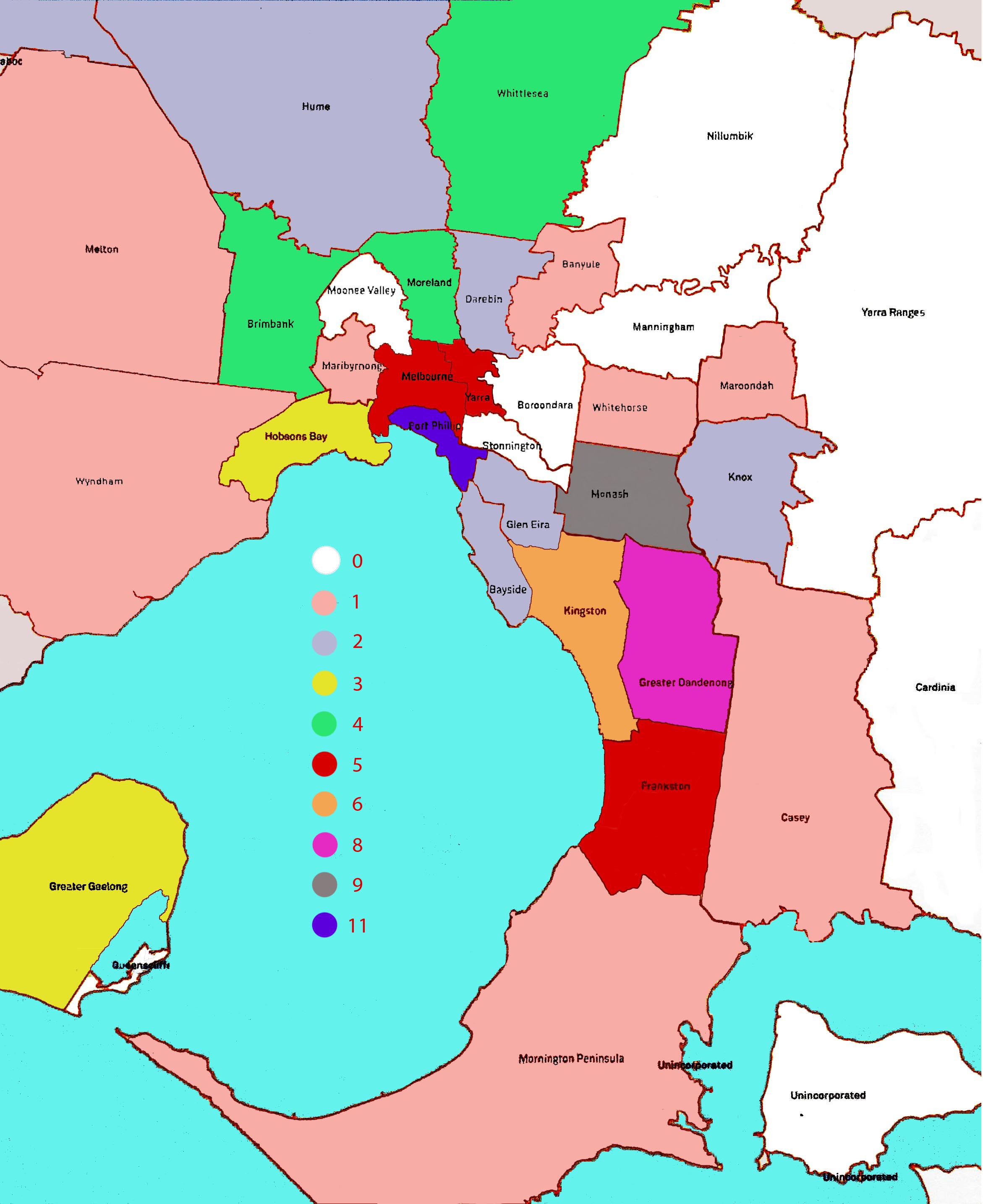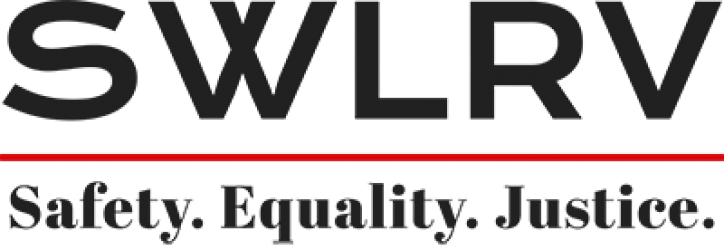Local Government
Victoria currently has a licensing/legalisation system of sex work laws. This is not the same as decriminalisation.
Under Victoria’s existing licensing model, councils decide where licensed brothels can operate according to planning laws. The Victorian Civil and Administrative Tribunal (VCAT) has the authority to hear disputes between business owners (including brothels) and councils about planning applications. Victoria Police has the role of investigating and shutting down unlicensed brothels.
Why is Local Government Important in Sex Work Decriminalisation Debates?
In Australia there are three levels of government (federal, state and local), and only state/territory governments are invested with the powers to change sex work laws. So, what part does local government play in the decriminalisation of sex work?
Councils are influential and important stakeholders in the debate around sex work decriminalisation. Amongst other things, council funds are spent investigating and reporting on some aspects of sex industry regulation, such as illegal brothels, and are used to provide services such as public toilets and rubbish bins in areas where street-based sex work takes place. At the time of writing, councils:
- refer complaints about unlicensed brothels (usually massage parlours) to Victoria Police
- approve or reject brothel planning permits
- investigate illegal brothels (usually massage parlours) for breach of planning laws
- are occasionally party to brothel planning permit civil disputes at the Victorian Civil and Administrative Tribunal
- can report health and safety concerns regarding licensed brothels to WorkSafe Victoria
- respond to public complaints about the impact of unlicensed brothels (massage parlours) on communities
- may provide services used by street-based sex workers, such as public toilets and bins,
- may manage traffic flows in areas where street-based sex work occurs
In the past, some councils have:
- paid private investigators to go undercover in entrapment operations to gather evidence inside unlicensed brothels (massage parlours). This sometimes involved the private investigator paying for and receiving sexual services from an unsuspecting sex worker.¹ ²
- paid council employees to go undercover in entrapment operations to gather evidence inside unlicensed brothels (massage parlours). This sometimes involved the council employee paying for and receiving sexual services from an unsuspecting sex worker.³
Councils regularly make submissions to inquiries/reviews relating to sex work, therefore their contribution to debates about the decriminalisation of sex work is crucial. For example, in 2017 the South Australian government considered decriminalising sex work and called for submissions. Of the 87 submissions, three came from councils: these submissions opposed significant aspects of decriminalisation or opposed the decriminalisation bill outright.⁴ The South Australian sex work decriminalisation bill was ultimately defeated in 2019 – the thirteenth time a move for decriminalisation has been defeated in South Australia. This demonstrates how important the voice of local government can be to the success or otherwise of decriminalisation, and the impact of their submissions on the legislative process. Councils represent local interests and they can play a large role in the amendment or blocking of legislative change.
Local Government Organisations
The Municipal Association of Victoria (MAV)
The Municipal Association of Victoria is a membership association and the legislated peak body for local government. Membership is voluntary; 78 of the 79 councils across Victoria are members. In October 2017, the MAV’s State Council passed a resolution,
“That the State Government review enforcement of the Sex Work Act 1994 in order to establish and appropriately resource an interagency taskforce to successfully prosecute unlawful operations establishing in shopping areas and near schools as ‘massage’ businesses, given the significant Public Health and Wellbeing risks to the Victorian community.”
Victorian Local Governance Association (VLGA)
The Victorian Local Governance Association is an independent organisation committed to supporting councils and councillors in good governance. The VLGA publishes weekly news updates on Youtube, called ‘VLGA Connect’.
On 25 February 2022, VLGA Connect interviewed Tony Raunic from Hunt & Hunt Lawyers about what the passage of the Sex Work Decriminalisation Bill 2021 and the accompanying changes to planning schemes means for local councils and the sex industry. Mr Raunic emphasises the bills intent to prohibit councils from discriminating against sex workers, that regulation will still apply to sex workers and that there will be political pressure on some councils to ban all forms of sex work. He also addresses the question: will council officers inspect the houses of sex workers and require proof of sexual health medical checks? The Youtube video below will automatically start playing at the correct mark, the 5 minute and 30 second mark.
On 31 August 2021, VLGA discussed the decriminalisation of sex work and councils. The Youtube video below will automatically start playing at the correct mark, the 6 minute and 30 second mark.
Local Government Professionals (LG Pro)
Local Government Professionals (LG Pro) is a membership-based association for people working in local government. LG Pro provides representation and a collective voice in influencing local government policy and inter-governmental relations.
Number of Licensed Brothels Per Local Government Area

- Numbers on graph denote number of licensed brothels per local government area
- Source: RED Magazine, Brothel Listing page
- Figures accurate as of 2019
- Figures only include licenced brothels. Graph does not include unlicensed brothels (massage parlours)
New South Wales Local Planning Panels
Unlike Victoria, which has a licensing model of sex work laws, NSW decriminalised sex work in 1995. While Victoria relies on councils to decide where brothels can be located, NSW has recently introduced a more flexible system to process brothel planning applications: LPP’s. In March 2018, NSW established Local Planning Panels (LPP) for all councils in Sydney plus Wollongong City Council.
LPP’s comprise independent panels, separate from councils, that process, among other applications, brothel planning applications. Each panel includes representatives from the local community.
One of the factors contributing to the proliferation of unlicensed brothels in those states which allow brothels (VIC, NSW, ACT, QLD), is the high number of rejections by councils of brothel planning applications. This provides an incentive for some brothels to operate illegally as massage shops. Some councils have rejected applications out of hand without reasonable grounds for objection. LPP’s were established to ensure the application process is fair, impartial, and eschews corruption.
LPP’s provide an example of a measure which addresses a public concern without criminalising marginalised communities and unnecessarily involving police resources.
According to the NSW Department of Planning and Environment, during their first year of operation LPP’s processed three brothel applications, all of which were approved.
Sex Work Law Reform Victoria will be paying attention to the success or otherwise of Local Planning Panels in New South Wales. Victoria would not be able to introduce a form of Local Planning Panels without amending the Planning and Environment Act 1987 (Vic).
1. ‘Councils Pay PI’s to Hire Prostitutes’, (29 January 2007) Government News
2. Staff Writer, Melbourne decides against illegal brothel strategy, (4 July 2007) Government News
<https://www.governmentnews.com.au/melbourne-decides-against-illegal-brothel-strategy/>
<https://www.smh.com.au/national/some-vic-councils-paying-for-brothel-sex-20070125-gdpbol.html>
3. Clay Lucas, ‘Councils defend brothel tactics’ (26 January 2007) The Age
4. Select Committee non the Statutes Amendment (Decriminalisation of Sex Work) Bill 2015, Report of the Select Committee on the Statutes Amendment (Decriminalisation of Sex Work) Bill 2015 (31 May 2017) Parliament of South Australia
Appendix 2: Submissions
<https://www.parliament.sa.gov.au/en/Committees/Committees-Detail>
© Sex Work Law Reform Victoria 2022
Last Updated: 29 April 2022
